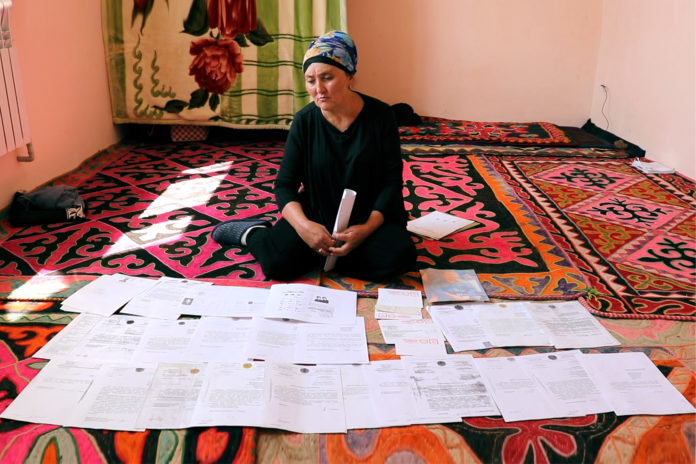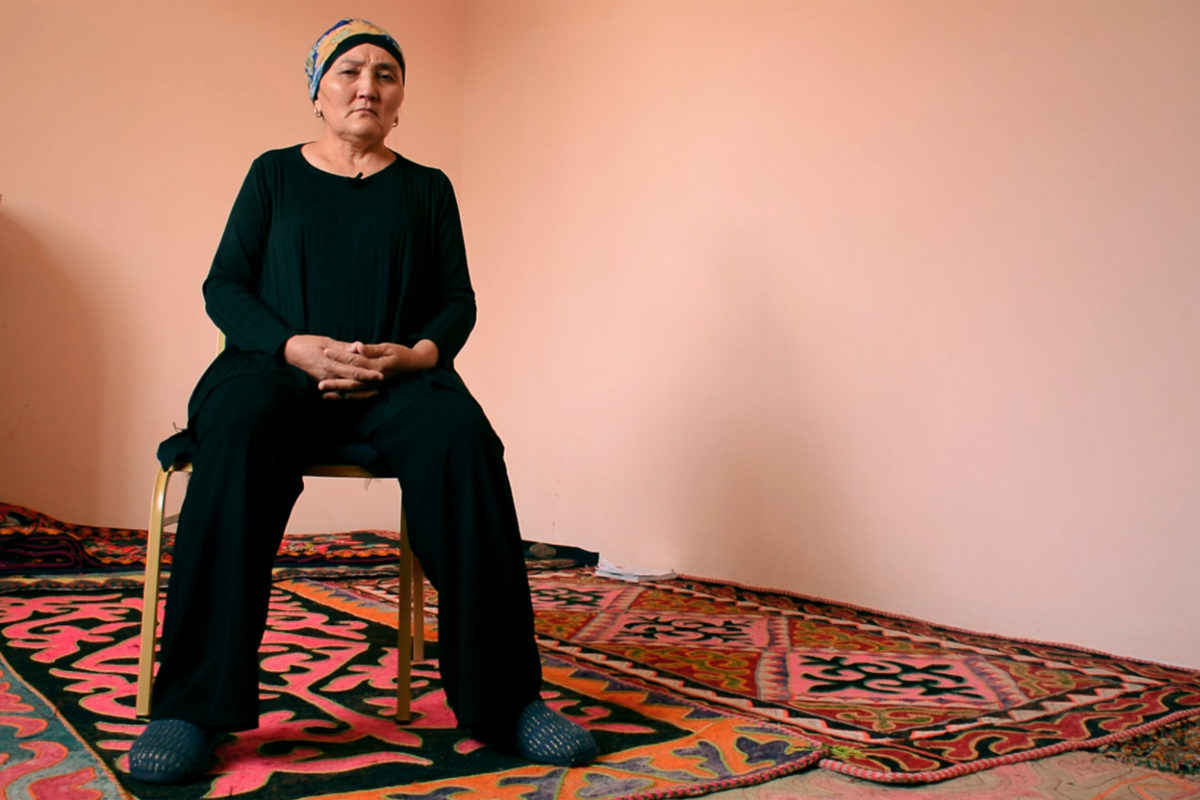

Parida Kabylbek, 58, was five when her father fled from China to Kazakhstan due to political pressure from the Chinese government. The family found him after 25 years, which was the first time Kabylbek saw him since he fled. It was on her wedding day.
Today, most of her family lives in Kazakhstan except for her husband, Rakhyzhan Zeinolla. He served 13 years in prison for alleged espionage, then was sent to 16 months in a detention centre and now lives alone in China without a right to a passport.
“In 2004 we went to visit relatives in China to pick up the rest of our things and see our relatives. Already there, the National Security of China arrested my husband and we didn’t hear anything about him for a whole year. A year later we learned that he was accused of espionage,” said Kabylbek in Kazakh.
She said she worries that her son, like her father and husband, will meet a similar fate. His hate towards China, along with his desire to actively participate in protests against the Chinese government’s actions towards the Muslim minority, makes him a target. Kabylbek wants her family to be together again without the fear of losing them all one day.
“What will happen to people like my husband? To those like me? Relatives? I’m worried about everyone,” she said.
Most people have heard about the mass genocide occurring in China’s concentration camps in Xinjiang. New camps show up on satellite shots every year. Religious minorities are sent to “re-education centres” where they face abuse and organ harvesting. Their children are taken into custody by the government and are sent to schools and kindergartens surrounded by barbed wires, which they cannot leave. Women are forced on birth control or other medication which damages their reproduction system. Cities and towns in Xinjiang are covered with surveillance technology and laws limit movement.
When Kabylbek tried to reach out to both Kazakhstan’s and China’s authorities, she didn’t receive any conclusive feedback nor aid in returning her husband to Kazakhstan. Since submitting requests didn’t return results, she now pickets and speaks up about the issues on the other side of the border in Kazakhstan whenever she has the chance. Facing adversity and overcoming it has become her lifestyle.
“I asked for help from my husband’s friends, they told me that they were forced to sign a blank page, otherwise they will be fired and lose their good jobs. Blank pages were filled by the National Security officers of Bortala district to blame my husband in crime … There were unjust moments,” said Kabylbek.

One winter day, when she was on a single picket in front of the Chinese embassy, they invited her in. She said during the conversation one of the employees asked her whether she would regret her current actions when China takes over Kazakhstan. They said everything she was wearing was made in China and asked how she could speak ill of the country where she was born and raised.
Living day-by-day without a husband who used to be the primary source of income for the family, Kabylbek raised the children alone. Their daughter was six and son 15 when their father was detained. Kabylbek managed to stay afloat with some aid from her relatives and temporary jobs. The biggest salary she received amounted to $285 CAD for a family of three. As of April 4, $1 CAD is equivalent to 338 Kazakhstani Tenge. She took on many jobs, from serving in cafes, working in bakeries, to sweeping the streets.
“I took any job available, it is a long list. During 16 years at least 16 kinds of jobs,” she said.
According to the United Nations, genocide includes mental and physical abuse, forced birth control, imposing limitations to create living conditions that would lead to the destruction of the group and mass killing of such group members. The Genocide Convention states that, “genocide means any of the following acts committed with intent to destroy, in whole or in part, a national, ethnical, racial or religious group.”
As she continues to fight for her right to reunite with her husband, Kabylbek is losing memories she could’ve made with her children and grandchildren. Her financial stability has improved as both her son and daughter can now work. She promised to continue with the picketing even if it doesn’t bring results. She will also keep on writing appeals and letters to both governments until she sees results.
I asked her, if she ever had a chance to speak to the world what would she tell us?
When she was five, China took her father, now it took her husband. It’s been 16 years and Kabylbek is still waiting for Zeinolla to return home.
“I am tired, really very tired. I don’t know whom to complain to, whom to cry to … If I do not take any action, then nothing will move forward.”
